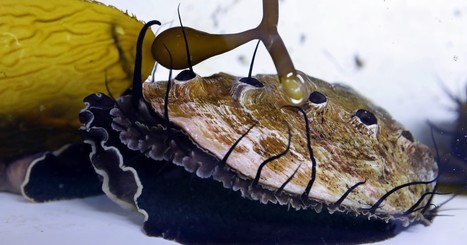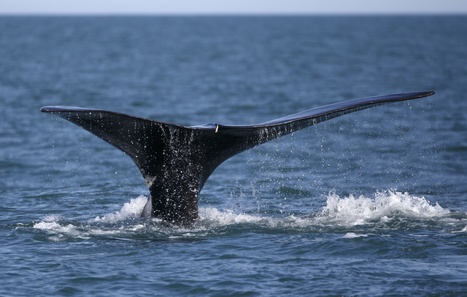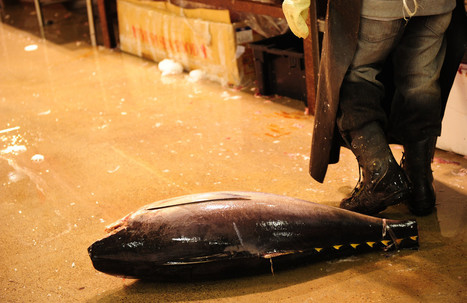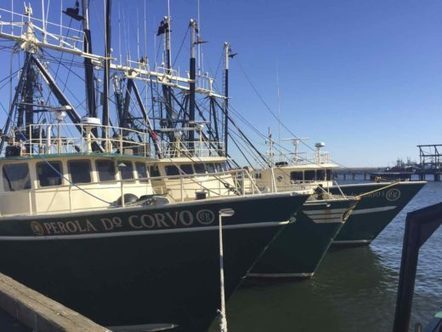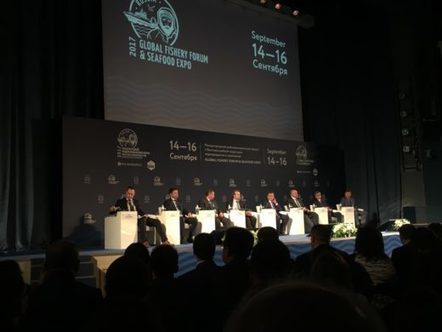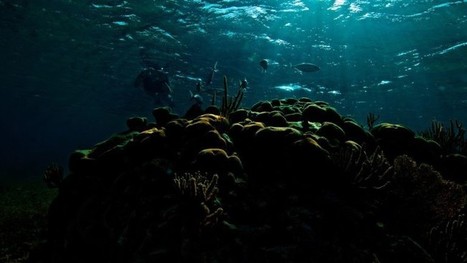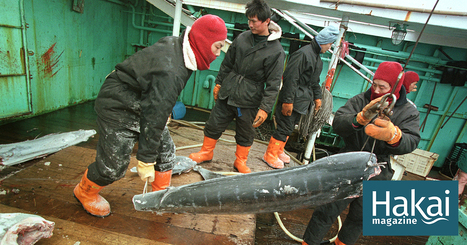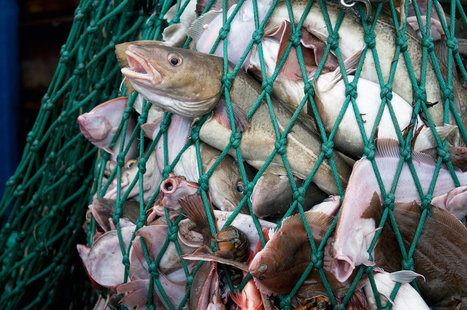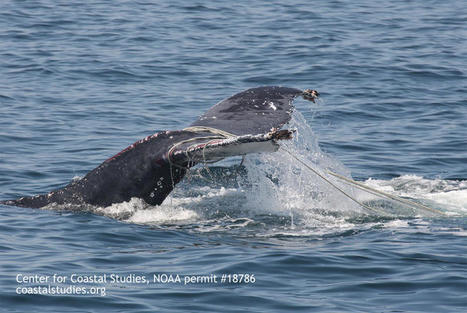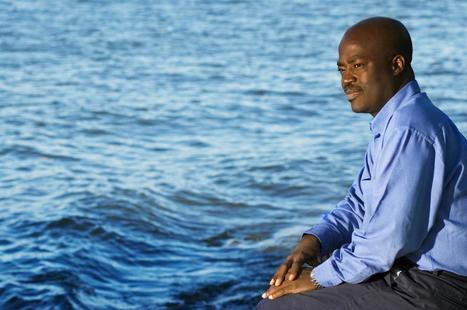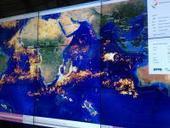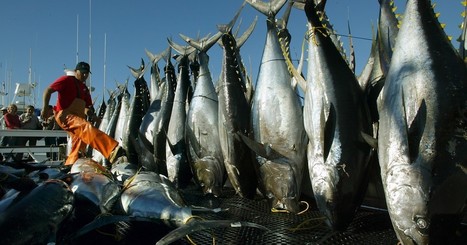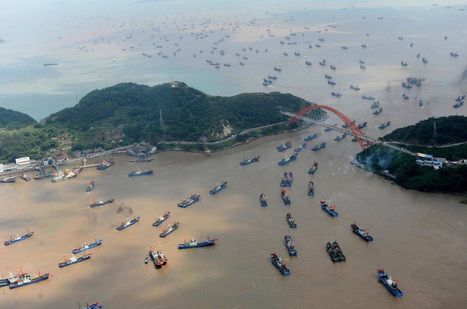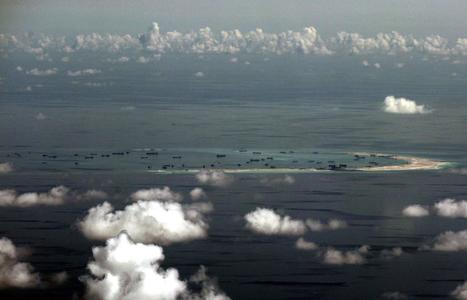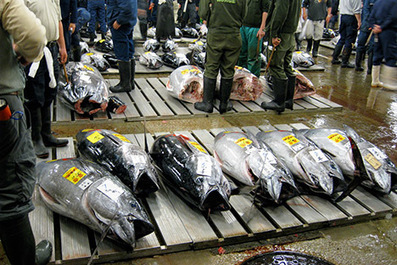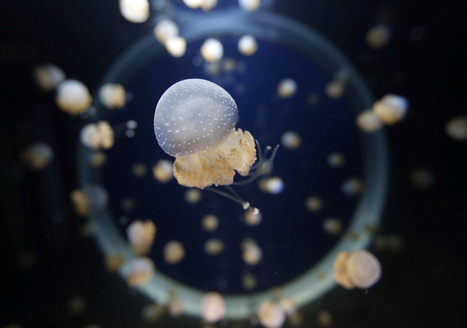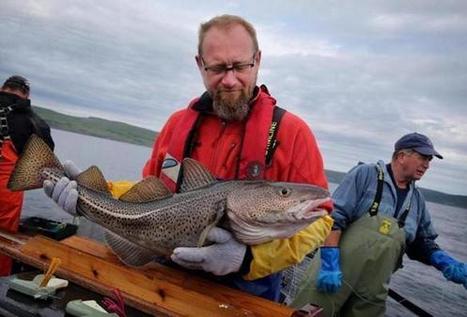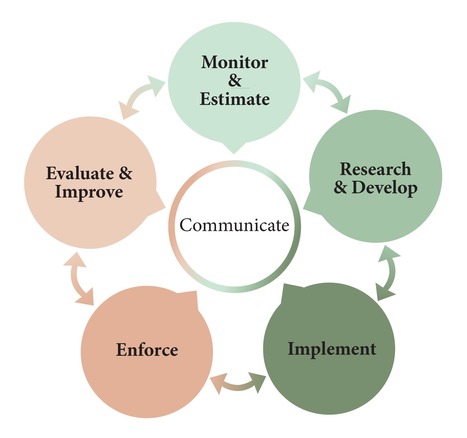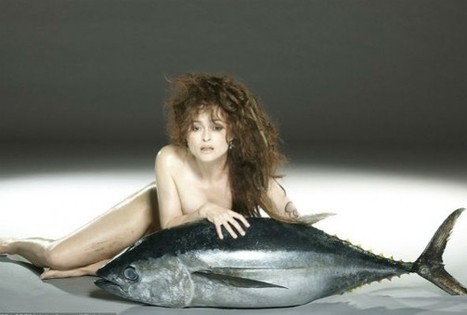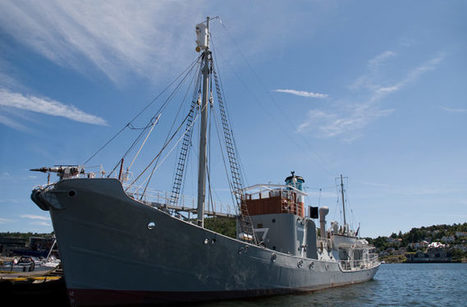 Your new post is loading...
 Your new post is loading...

|
Scooped by
PIRatE Lab
|
In January 2015, angered by cuts to his portion of federal groundfish disaster relief, Rafael publicly railed against the process and said he planned to sell his more than 40 vessels and the approximately 60 federal fishing permits attached to them.
And with that, according to a NOAA Office of Law Enforcement presentation Tuesday to the New England Fishery Management Council on the criminal case against Rafael, five federal law enforcement agencies saw their opening.
They began widespread undercover investigations that ultimately led to Rafael's indictment and conviction in November 2017 for fisheries reporting violations, tax evasion and bulk smuggling.

|
Scooped by
PIRatE Lab
|
My job is to write about the wonders and challenges of our coast and oceans, but I’ll admit: Before this story, I had no idea what an abalone looked like.

|
Scooped by
PIRatE Lab
|
There are likely many interconnected reasons for declining birth rates. But two key factors are nutrition and stress.

|
Scooped by
PIRatE Lab
|
A recent study demonstrates how billions of dollars in government subsidies funds much of the reckless fishing that takes place in international waters.

|
Scooped by
PIRatE Lab
|
You may also like: Parts of four Rafael boats, 34 permits to be seized as judge spares scallop vessels Permit banking threat helped drive Canastra Rafael deal Scallop auction owners reach $93m agreement for Codfather fleet Council to NOAA: […]

|
Scooped by
PIRatE Lab
|
You may also like: Ocean Trawlers parent plans branded fresh products after frozen launch Global Fishery Forum: New Russian fisheries strategy to boost the country’s GDP Russian Fishery aims to develop branded pollock products for China after domestic launch

|
Scooped by
PIRatE Lab
|
In coral reef ecosystems, fish typically constitute a substantial portion of living biomass and thus represent an important reservoir of…

|
Scooped by
PIRatE Lab
|
A new international agreement should help strip illegal fishers’ access to the market.

|
Scooped by
PIRatE Lab
|
Ray Hilborn has a reputation for challenging studies showing declines in fish populations. But Greenpeace says its public records request has revealed a failure to disclose industry funding on papers.

|
Scooped by
PIRatE Lab
|
It's the holy grail of commercial fishing: catch just the right amount of just the right size of just the right species, without damage to the physical

|
Scooped by
PIRatE Lab
|
When it comes to hunting animals for bushmeat, how much is too much?

|
Scooped by
PIRatE Lab
|
Analysis of fisheries data indicates that if increased spillover of fish stocks from protected international waters were to boost coastal catches by 18 per cent, current global catches would be maintained. When the researchers modeled less conservative estimates of stock spillover, catches in coastal waters surpassed current global levels.

|
Scooped by
PIRatE Lab
|
The Global Fishing Watch tool, currently in Prototype stage, was launched today at the 6th IUCN World Parks Congress event in Sydney, a conference bringing together over 5,000 delegates from over 170 countries to discuss the future of protected areas, our planet’s environment and sustainability. During their presentation, Google along with project technology partners SkyTruth and Oceana discussed how the tool will be made available to the public, enabling users to monitor when and where commercial fishing is happening around the world. This allows global citizens to use the tool from the comfort of their own home to see if their fishieries are being managed effectively, whilst inversely allowing fishermen to be able to prove they are obeying international and environmental laws and guidelines.
|

|
Scooped by
PIRatE Lab
|
Secret meetings, whispered threats -- the price-fixing case against tuna companies sounds like a mafia story.

|
Scooped by
PIRatE Lab
|
Idaho Fish and Game Commissioner Blake Fischer is being criticized for posting pictures of himself on a game hunt in Africa. The pictures depict him posing with a giraffe and a family of baboons he killed.

|
Scooped by
PIRatE Lab
|
Already devastated by drought, California's salmon industry fears being wiped out by Trump's environmental rollbacks.

|
Scooped by
PIRatE Lab
|
Their findings estimate that fishing activities occurred on nearly three-quarters of the ocean’s surface in 2016 alone

|
Scooped by
PIRatE Lab
|
The Hague court's finding that China caused 'devastating' harm to marine ecosystems could shift the political dynamics, some analysts say.

|
Scooped by
PIRatE Lab
|
You may also like: DNA tests confirm southern bluefin tuna on menu in mainland China Japanese seafood distributor Kyokuyo to sell its farmed bluefin US refuses to list Pacific bluefin as endangered

|
Scooped by
PIRatE Lab
|
Climate change, overfishing and pollution would naturally seem harmful for marine life. But one group of animals appears to be thriving: jellyfish. The blob-like creatures reproduce rapidly in higher temperatures and can prosper in waters tainted by human activity, such as the Gulf of Mexico’s oxygen-depleted “dead-zone.” Plus, declining fish populations mean reduced competition for food.

|
Scooped by
PIRatE Lab
|
In Newfoundland, where most of the young men who would have followed their fathers into the fishery have either left the island or entered other professions, there’s something new in the salty air of many of the old, neglected fishing towns: hope.

|
Scooped by
PIRatE Lab
|
The places that purvey them are painted in bright colors, like fro-yo shops, and offer a customizable assembly-line ordering experience, like Chipotle. In the Bay Area, typical options include brown rice, white rice and kale salad — or, if you’re at the shiny new Pokeatery in San Mateo, crunchy kelp noodles. [...] you choose two, three or more types of protein — ahi, yellowtail, salmon, shrimp, imitation crab, spicy tuna and octopus are the most common, though you can occasionally find scallops, tofu and chicken. The fish is mixed in a sauce, traditionally a salty-sweet shoyu, but shops offer everything from spicy mayo to citrusy ponzu. Most have edamame, mango, avocado, roasted garlic, green onions, jalapeño and masago; some have radish sprouts, like the new I’a Poke on Church Street, or crunchy bits like lotus chips and macadamia nuts, as promised at the soon-to-open Pokeworks in Mountain View. I try to be careful with my seafood sourcing, avoiding sushi places that sell bluefin and other raw fish unless I know the provenance. Poki Time at least lists the fish’s country of origin, but there’s little information about the fishing methods — and other shops, like Colma’s Poke Bowl, could only tell me that their fish was “fresh.” When it comes to sourcing, specificity is key, says Crystal Sanders of Fish Revolution, a Bay Area company that works to educate business owners and customers on responsible seafood choices. In particular, it’s important to know the specific fish species, because some are more endangered than others — if tuna, is it ahi, bluefin or the more sustainable albacore? Some fish, like ahi or octopus, may not be terrible to eat in themselves, but the methods used to catch them, especially outside the U.S., can dredge up other fish, sea birds, sharks and sea turtles. The Whole Beast started offering poke at its expanded seafood counter at the Hall in November, and sustainable fish pop-up Hook Fish Co. is searching for a brick-and-mortar space where it will sell its poke along with seafood and other products.

|
Scooped by
PIRatE Lab
|
NOAA Fisheries is committed to minimizing bycatch in U.S. fisheries. While we've made great progress, there is more to do. We have developed a draft National Bycatch Reduction Strategy, and we want your input. Efforts to address bycatch fall into six broad program areas. 1) Monitor and Estimate: We monitor and estimate the rates of bycatch and bycatch mortality in fisheries to understand the level of impact and the nature of the interaction. 2) Research and Development: We conduct and support research to improve estimates of bycatch rates, better understand the impacts of bycatch on species interactions and community dynamics, modify fishing gear, and develop mitigation tools to minimize bycatch and its impacts. 3) Implement and Manage: We work with partners to develop and implement domestic management measures and promote the adoption and implementation of international measures to address bycatch and its impacts. 4) Evaluate and Improve: We evaluate the effectiveness of science and management programs to determine whether programs achieve stated goals and identify needed improvements. 5) Enforce: We enforce fishery management measures and work with state, federal, and international partners to ensure compliance with all applicable laws. 6) Communicate: We communicate within the Agency and to stakeholders to maximize the impact of bycatch reduction efforts
Celebs like, Helena Bonham Carter, have shed their clothes in support of the Blue Marine Foundation's campaign, Fishlove.
Via Gaye Rosier

|
Scooped by
PIRatE Lab
|
A new report reviews the past, present, and future of ocean animals.
|
 Your new post is loading...
Your new post is loading...
 Your new post is loading...
Your new post is loading...






